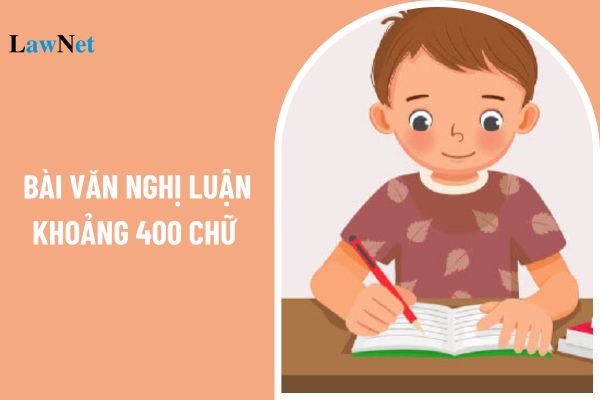What are the 02 sample 400-word argumentative essays on training in the virtue of honesty? What are the required outcomes regarding argumentative texts in the Literature curriculum for 7th-grade students in Vietnam?
What are the 02 sample 400-word argumentative essays on training in the virtue of honesty?
Below are 02 sample 400-word argumentative essays on training in the virtue of honesty:
Sample 1: Training in the virtue of honesty
| In modern life, honesty is an extremely important virtue that everyone needs to cultivate. Honesty is not only about speaking the truth but also involves rightful actions, without deceit or covering up the truth. This virtue helps individuals build trust with others and allows them to be confident and at peace with themselves. Honesty is the cornerstone of trust and friendship. An always honest person will be trusted and respected by everyone. When we speak the truth, even if it is somewhat difficult, those around us will understand and appreciate our sincerity. Conversely, if a person is not honest, they may temporarily deceive others but cannot maintain long-term relationships. Deceit only causes people to lose trust in each other, creating false and tiring relationships. Moreover, honesty helps us affirm our self-worth. An honest person always knows what they are doing and will not feel regret for their actions. Even when facing difficulties, honesty brings us peace and joy, knowing we are living rightly and not deceiving anyone. However, in some situations, being honest can be challenging, such as when confronting an unwanted truth. Yet, we must remember that honesty will help us overcome these situations and set an example for those around us. It is the way to help us mature and achieve success in life. Honesty is an important virtue that everyone must cultivate to build strong relationships and establish trust. Even if sometimes faced with challenges, honesty will bring us respect and long-lasting success. |
Sample 2: Training in the virtue of honesty
| In life, honesty is an immensely valuable virtue, helping people build trust and affection from those around them. Honesty is not only manifested in words but also in actions, being essential for building sustainable relationships and the foundation for success in all fields. Honesty means always telling the truth, not deceiving or hiding wrongdoings. Especially in academics, honesty is clearly demonstrated by not cheating on tests or plagiarizing others' ideas. Honesty is also admitting mistakes when they occur and not blaming the circumstances or others. An honest person is always ready to face the truth, never afraid or avoiding responsibility. Cultivating the virtue of honesty is not easy because, in modern life, there are many temptations that can lead us into dishonest actions. However, if each person appreciates the value of honesty, they will realize that maintaining this virtue not only brings respect from others but also helps them feel confident and at peace in life. Furthermore, in the school environment, honesty plays a crucial role in building a solid foundation of knowledge. If students study honestly, without cheating, they will truly understand and be able to apply knowledge in real life. Conversely, if they cheat, students will not be able to fully realize their potential and may face unfortunate consequences in the future. Cultivating the virtue of honesty is a long-term process that requires perseverance. Each person must determine the importance of honesty, strive to maintain and promote it in all their actions and words. Only then can we build a beautiful life full of trust and success. |
Note: The two 400-word argumentative essays are for reference only!

What are the 02 sample 400-word argumentative essays on training in the virtue of honesty? What are the required outcomes regarding argumentative texts in the Literature curriculum for 7th-grade students in Vietnam? (Image from the Internet)
What are the required outcomes regarding argumentative texts in the Literature curriculum for 7th-grade students in Vietnam?
Under the Appendix of the General Education Program for Literature issued together with Circular 32/2018/TT-BGDDT, the required outcomes regarding argumentative texts in the Literature curriculum for 7th-grade students in Vietnam are as follows:
Reading comprehension of content
- Recognize ideas, arguments, and evidence in the text; identify the connections between ideas, arguments, and evidence.
- Determine the purpose and main content of the text.
Reading comprehension of form
Recognize the characteristics of argumentative texts about a life issue and argumentative analysis of a literary work; identify the relationship between the text's characteristics and its purpose.
Relation, comparison, connection
State experiences in life that help oneself understand ideas or issues raised in the text better.
Extended reading
In one school year, read at least 9 argumentative texts (including texts guided for reading on the Internet) with lengths equivalent to those studied.
When do 7th-grade students in Vietnam achieve the "Good Student" title?
According to the regulations in Article 15 of Circular 22/2021/TT-BGDDT, 7th-grade students in Vietnam achieve the "Good Student" title if they have obtained Excellent training and learning results for the entire school year.

